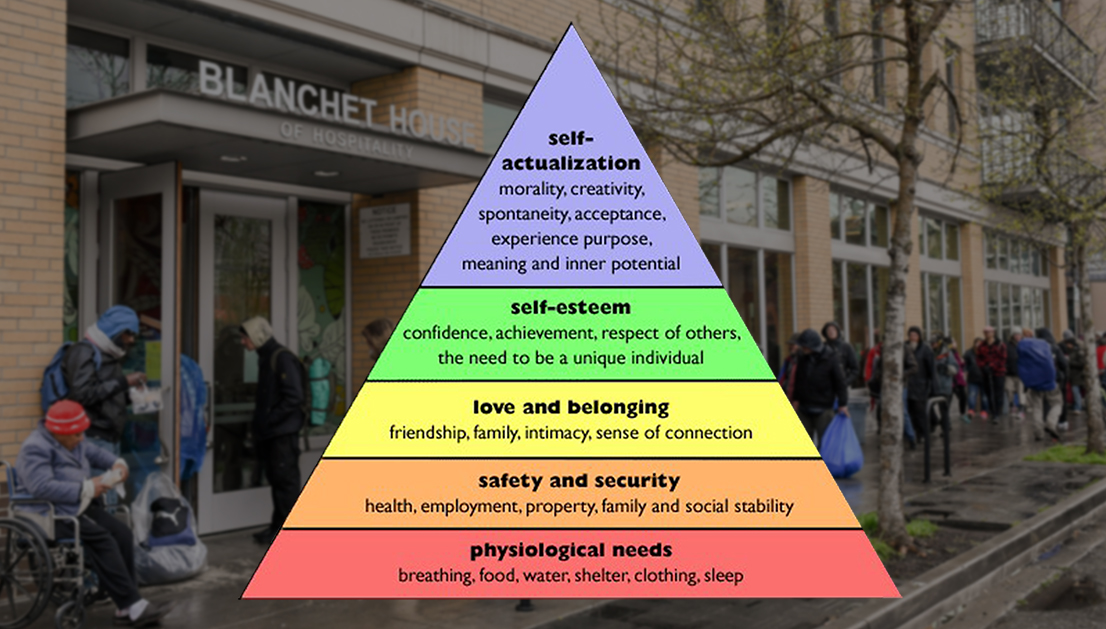What Are the 5 Definitions of Health: There are five definitions of health: physical, mental, emotional, social, and spiritual well-being. These definitions encompass different aspects of an individual’s overall health and provide a holistic understanding of what it means to be healthy.
Keeping these dimensions balanced is essential for overall well-being and a high quality of life. To achieve optimal health, it is important to pay attention to all these dimensions and make conscious efforts to maintain their balance. Prioritizing self-care, seeking support, and engaging in activities that promote well-being contribute to a healthy and fulfilling life. 


Understanding the multiple facets of health allows individuals to take a comprehensive approach to their overall well-being.
1. Physical Health
Physical health refers to the overall well-being of our bodies. It involves taking care of ourselves through regular exercise, proper nutrition, and maintaining a healthy lifestyle. Physical health is not just about having a fit body, but it also plays a crucial role in our daily lives and mental well-being.
Importance of physical well-being for overall health
Physical health is the foundation of our overall well-being. When we are physically healthy, it not only helps us in our day-to-day activities but also increases our resistance to diseases and illnesses. It allows us to have more energy, be mentally alert, and enhance our productivity in various aspects of life. Good physical health enables us to enjoy life to the fullest.
How physical health impacts daily life
Physical health has a significant impact on our daily lives. When we are physically healthy, we can carry out our daily tasks more efficiently and with less effort. We can engage in physical activities with ease, whether it is playing sports, going for a hike, or simply performing household chores. Maintaining physical health helps us stay active, independent, and capable of meeting the demands of our daily routines.
The role of exercise and nutrition in maintaining physical health
Exercise and nutrition play a crucial role in maintaining physical health. Regular exercise strengthens our muscles, improves cardiovascular health, and boosts our immune system, making us more resistant to diseases. It also helps in weight management and reduces the risk of chronic illnesses such as heart disease, diabetes, and certain types of cancer. Proper nutrition provides our bodies with the necessary nutrients, vitamins, and minerals to function effectively. It supports healthy growth, development, and the repair of body tissues. A balanced diet that includes a variety of fruits, vegetables, lean proteins, whole grains, and healthy fats is essential for maintaining physical health.
Exploring the connection between physical health and mental well-being
Physical health and mental well-being are closely interconnected. When we take care of our physical health, it has a positive impact on our mental well-being. Regular exercise releases endorphins, known as “feel-good” hormones, which help reduce stress, anxiety, and depression. Proper nutrition also plays a role in brain health, supporting cognitive functions and mood stability. On the other hand, poor physical health can have detrimental effects on mental well-being. Physical ailments, chronic pain, or limited mobility can lead to feelings of frustration, helplessness, and lowered self-esteem. It can also affect sleep patterns, energy levels, and overall mood. In conclusion, physical health is an essential aspect of overall health and well-being. By prioritizing physical well-being through regular exercise, proper nutrition, and a healthy lifestyle, we can improve our daily lives, boost our mental well-being, and enjoy a higher quality of life.
2. Mental Health
Mental health is a critical aspect of overall well-being, yet it is often overlooked or brushed aside. Understanding the significance of mental health is essential for maintaining a balanced and fulfilling life. It encompasses our emotional, psychological, and social well-being, affecting how we think, feel, and act. Just like physical health, mental health plays a crucial role in our ability to handle stress, relate to others, and make sound decisions.
Understanding the significance of mental health
The significance of mental health cannot be overstated. It is the foundation upon which our overall health and well-being are built. When we achieve good mental health, we are more equipped to cope with the daily challenges and stresses that life throws at us. It allows us to build resilience, maintain healthy relationships, and thrive in our personal and professional lives.
The impact of stress and mental illness on overall health
Stress and mental illness can have a profound impact on our overall health. Chronic stress, for instance, can lead to a range of physical and mental health problems. It compromises our immune system, making us more susceptible to illnesses. It can also contribute to the development or worsening of mental health conditions, such as anxiety and depression. Similarly, untreated mental illness can adversely affect our physical well-being, leading to complications and reducing our overall quality of life.
Strategies to promote good mental health
Promoting good mental health requires proactive measures to cultivate resilience and well-being. Here are some strategies that can help:
- Practice self-care: Prioritize activities that bring you joy and relaxation, such as exercise, hobbies, and spending time with loved ones.
- Seek support: Share your thoughts and feelings with trusted friends or family members. Consider seeking professional help if needed.
- Manage stress: Incorporate stress-management techniques into your daily routine, such as meditation, deep breathing exercises, or engaging in activities you find calming.
- Nurture relationships: Maintain meaningful connections with others by fostering healthy relationships and engaging in positive social interactions.
- Take breaks: Give yourself permission to rest and recharge. Take regular breaks from work or daily responsibilities to avoid burnout.
Exploring the connection between mental health and physical well-being
The connection between mental health and physical well-being is undeniable. Our mental state can directly impact our physical health and vice versa. For example, a decline in mental health can lead to decreased energy levels, poor sleep, and impaired immune function. On the other hand, physical conditions such as chronic pain or a serious illness can contribute to feelings of anxiety, depression, and other mental health challenges. It is crucial to recognize and address the interplay between mental and physical health to achieve optimal overall well-being. By prioritizing mental health and adopting strategies to promote it, we can enhance our physical well-being and lead healthier, more fulfilling lives.
3. Emotional Health
Defining emotional health and its importance
Emotional health, also known as emotional well-being, refers to the state of an individual’s emotional and psychological state. It encompasses how individuals feel about themselves, others, and the world around them. Being emotionally healthy means having the ability to manage and cope with various emotions effectively. Emotional health is an essential component of overall well-being as it influences how individuals perceive and interact with the world. When individuals are emotionally healthy, they are more likely to experience positive emotions, have fulfilling relationships, and effectively handle stress and challenges.
How emotional well-being affects daily life
Having good emotional well-being has a significant impact on an individual’s daily life. It plays a crucial role in how individuals manage their relationships, handle stress, and make decisions. When someone is emotionally healthy, they are better equipped to navigate through life’s ups and downs. Emotional well-being affects various aspects of daily life, including work performance, relationships, and overall satisfaction. It enables individuals to build meaningful connections with others, communicate effectively, and maintain a positive outlook.
Coping mechanisms and emotional resilience
Developing healthy coping mechanisms and emotional resilience is essential for maintaining emotional health. Coping mechanisms refer to the strategies individuals use to manage and navigate through life’s challenges and stressors. Having strong emotional resilience allows individuals to bounce back from setbacks and adapt to change effectively. It involves cultivating a positive mindset, practicing self-care, seeking support when needed, and developing healthy ways to manage stress.
The influence of emotional health on physical and mental well-being
Emotional health has a profound influence on both physical and mental well-being. When individuals are emotionally healthy, they are more likely to engage in behaviors that promote physical health, such as regular exercise, balanced nutrition, and adequate sleep. Moreover, emotional health significantly impacts mental well-being. It contributes to the prevention of mental health issues such as anxiety and depression. When individuals have good emotional health, they can better manage their thoughts and emotions, leading to improved mental stability and overall psychological well-being. 


4. Social Health
Social health refers to the quality of our relationships and interactions with others. It plays a crucial role in our overall well-being and has a significant impact on our physical, mental, and emotional health. Having strong social connections and maintaining healthy relationships is essential for leading a fulfilling and meaningful life.
The impact of social isolation on overall well-being
Social isolation, on the other hand, can have detrimental effects on our health. When we lack social connections, we are more prone to feelings of loneliness, depression, and anxiety. Studies have shown that prolonged social isolation can even lead to physical health problems such as heart disease, weakened immune system, and a higher risk of mortality.
Strategies for fostering healthy social interactions
To prevent social isolation and promote social health, it is important to actively foster healthy social interactions. Here are a few strategies:
- Joining community groups: Participating in groups or clubs that align with your interests can provide opportunities to meet like-minded individuals and build relationships.
- Nurturing existing relationships: Regularly reaching out to family, friends, and loved ones helps to maintain and strengthen these important connections.
- Volunteering: Engaging in volunteer work not only allows you to give back to the community but also exposes you to new experiences and opportunities to meet diverse groups of people.
- Using social media mindfully: While social media can help facilitate connections, it is important to use it in moderation and maintain a healthy balance between online and offline interactions.
The connection between social health and overall life satisfaction
Social health and overall life satisfaction are closely intertwined. When we have strong social connections and supportive relationships, we experience a greater sense of belonging, happiness, and contentment. These connections act as a source of emotional support, provide a sense of purpose, and enhance our overall well-being. Taking care of our social health not only improves our quality of life but also contributes to a healthier and more fulfilling existence.
5. Spiritual Health
Understanding the concept of spiritual health
Spiritual health is an integral part of our overall well-being, often overlooked in the pursuit of physical and mental wellness. It focuses on nurturing our inner self, connecting with a higher power, and finding purpose and meaning in life. While spirituality is deeply personal and subjective, it is commonly defined as a belief in something greater than oneself and a sense of connection to the world around us.
Exploring the role of spirituality in health and well-being
Spirituality plays a vital role in promoting health and well-being, both physically and mentally. Research suggests that individuals with a strong spiritual foundation tend to have better-coping mechanisms, reduced stress levels, and improved emotional resilience. It provides a sense of comfort, hope, and inspiration, which in turn can positively influence a person’s overall quality of life.
Practices and beliefs related to spiritual health
Practices and beliefs related to spiritual health vary across cultures and individuals. They can include but are not limited to:
- Meditation and mindfulness
- Prayer and religious rituals
- Engaging in acts of kindness and service
- Connecting with nature
- Exploring philosophical and existential questions
These practices and beliefs provide individuals with a sense of purpose, peace, and harmony with themselves and the world around them.
How spiritual health contributes to a holistic approach to overall well-being
Spiritual health is an essential component of a holistic approach to overall well-being. When we neglect our spiritual needs, we may feel a sense of emptiness or lack a deeper sense of purpose. By nurturing our spiritual well-being, we can achieve greater balance and harmony in our lives. When our physical, mental, and spiritual dimensions are in alignment, we experience a sense of wholeness and fulfillment. Furthermore, taking a holistic approach to overall well-being ensures that we address all aspects of our health, not just the physical or mental aspects. It recognizes the interconnection between our physical, mental, emotional, and spiritual well-being, and emphasizes the importance of nurturing all aspects to live a truly fulfilling life.



Credit: blanchethouse.org
Frequently Asked Questions For What Are The 5 Definitions Of Health
What Is The Best Definition Of Health?
Health is the state of overall well-being, both physically and mentally. It encompasses being free from illness, having enough energy to perform daily activities, and having positive emotions. Being healthy enables individuals to live a fulfilling life and make the most of their potential.
What Are Several Definitions Of Health?
Health can be defined as the state of physical, mental, and social well-being. It encompasses a person’s overall functioning and ability to adapt to challenges. Additionally, health refers to the absence of diseases or illnesses that hinder optimal functioning.
What Are The 4 Concepts Of Health?
The four concepts of health are physical, mental, emotional, and social well-being. These aspects are interconnected and contribute to overall health and well-being.
What Are The 5 Models Of Health And Illness?
The five models of health and illness include the biomedical model, biopsychosocial model, social model, lay model, and cultural model. Each model provides a different perspective on health and illness, taking into account various factors such as biology, psychology, social determinants, individual beliefs, and cultural influences.
Conclusion
Understanding the multiple definitions of health provides us with a comprehensive perspective on our well-being. Whether we focus on the absence of disease, the balance between mind and body, or the pursuit of optimal functioning, each definition contributes to a holistic understanding of health.
By recognizing the interconnectedness of these definitions, we can strive for overall wellness and make informed decisions for our care.









3 Comments
[…] Lemon Juice And Its Impact On Kidney Health […]
[…] Health Risks of Losing Weight Too Quickly […]
[…] nutrition and mental […]